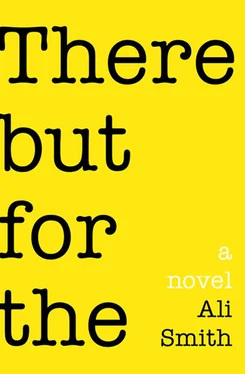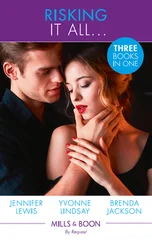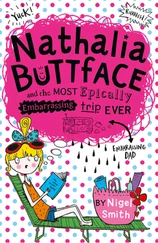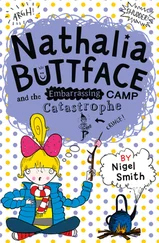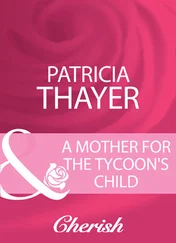The inside of that jacket had smelled nice.
There was no sign yet of the child.
She checked her mobile. It was ten to three. She held it in her hand, weighed it, felt its lightness. Imagine. This phone. A historical object.
She took Miles’s mobile out of the jacket pocket. It wouldn’t switch on. Its battery would be dead. She put her hand back in and felt for the wallet. Vera Pelle, Made In Italy. Three credit cards, two debit cards, Royal Bank. An AA card with his name on it and the word Roadside. Six first-class stamps. A membership card for the Tate. Three twenty-pound notes.
The man in the picture on the driving licence was nobody she recognized. He was balding. Even on the rather poor reproduction you could see furrows in the forehead.
But when she saw the reproduction of his signature there on the licence, the little loop on the l in Miles, the slope of the G and the r and the way the t and the h ran together in Garth, she knew him again immediately. Even more, when she saw his handwriting she saw clearly in her head, in the same hand, the address of her own original home, the home of a total stranger now and as long gone and as ever-present to her as her own dead parents.
She was eighteen and home from university and a letter had come. It had said in it that he was playing or singing in a band called The Shakespearos. He had drawn a cartoon of The Pink Panther playing an electric guitar on the back of the envelope.
And — yes! — he had even come to visit her at home once, Miles Garth; she had seen him again, the next year, 1981, was it? He’d come all the way up the country because he was going camping in Ullapool and had been passing through her town and had called in. Her mother had made him a salad, with summer new potatoes, because he didn’t eat meat and they were having mince. At one point she’d left the room. When she’d come back — she remembered it as clearly as if it had happened in a story — she could see him sitting there so English and polite on the couch in the patio. She’d watched him for a moment through the kitchen partition. He didn’t know she was there. He’d been given a cup of tea and he’d felt the base of the cup with his hand and had realized it was wet and that some of the tea had spilled on the tiles by his feet. But because her mother was speaking to him, or her father was talking about something, tomato plants, this is what he did. He unzipped his ankle boot. He did it decorously, without looking down, without stopping listening, and in a way that meant neither of her parents noticed. Then he levered his foot by slight shifts and shakes out of his boot. He put his socked foot down where the tea was spilled, felt for it, and mopped it up with his sole. Then, still without looking down, he felt for the mouth of the boot with his toes and put the foot back into it again. He did this without ever once having looked away from whoever was speaking.
She sat in the future and turned the driving licence over in her hand. Valid till 17-03-32. She flipped it over again to the little bleached photograph. When this furrowed stranger was a boy in a foreign country, he had gone out of his way for her. He’d reinvented her. He’d moved up and made space for her on a bus. In her home he’d been kind to her parents.
Thirty years later that last memory revealed itself clean as a new potato in the soil it’s just been unearthed from.
She wiped her eyes on the sleeve of Miles’s jacket, which let her know she’d been crying, which was something she hadn’t done for quite some time. This knowledge, in turn, made something deep inside her chest crack open and shell off.
Bang bang bang.
Listen to that. Feel that.
That noise was her.
She’d definitely register now in any heartbeat detector shed.
Film that, you cameras. Let’s see how much it’s possible to know about what’s really happening by filming me sitting here today. Go on, prove I was there. Show us what it meant, that I was.
Anna stood up. She faced one of the CCTV cameras. She put her fist in the air.
But then she felt a bit stupid doing it, standing there so alone. She pretended she’d been stretching her arm. She stretched the other one too. Ah. There. That’s better.
She sat down on the wall again.
Imagine the relief there’d be, in just stepping through the door of a spare room, a room that wasn’t anything to do with you, and shutting the door, and that being that.
There’d be a window, wouldn’t there?
Were there any books in there?
What would you do all day?
What would happen if you did just shut a door and stop speaking? Hour after hour after hour of no words. Would you speak to yourself? Would words just stop being useful? Would you lose language altogether? Or would words mean more, would they start to mean in every direction, all somersault and assault, like a thuggery of fireworks? Would they proliferate, like untended plantlife? Would the inside of your head overgrow with every word that has ever come into it, every word that has ever silently taken seed or fallen dormant? Would your own silence make other things noisier? Would all the things you’d ever forgotten, all layered there inside you, come bouldering up and avalanche you?
Did he want to know what it felt like to not be in the world? Had he closed the door on himself so he would know what it feels like, to be a prisoner? Was it some wanky kind of middle-class game about how we’re all prisoners even though we believe we’re free as a bird, free to cross any shopping mall or airport concourse or fashionably stripped back wooden floor of the upstairs room of a house?
Did he inhabit his cell for the good of the others, like a bee or a monk?
Or was he, say, a smoker and was it all an elaborate ruse to make himself give up?
Then she laughed out loud. Miles Garth, whoever he was, was making her join in all over again.
Yep iep iep iep!
The child was back. The yellow and blue force of her collided, breathless, with Anna still sitting on the wall.
Knock knock, the child said.
Come in, Anna said.
Ha ha!
The child buckled over on the pavement in happy merriment.
Come on, come on, the tunnel! she said. She says we can go!
Where’s the proof? Anna said.
I have it here in my head, the child said.
No, I’ll need something more substantial than that in this wicked day and age, Anna said.
Well, I am allowed to go to the tunnel with you, and that’s a fact, the child said. And my mother says it is a fact. She’s at home right now. She’s writing a paper about how nature says that God is dead.
About what says what? Anna said.
Do you get it? It’s a pun! It’s a pun! the child said. She told me it to tell you. Do you get it? She says it is a really good one, pun I mean.
We’re still not going to any tunnel, Anna said.
Then she asked the child about the window in the room the man had locked himself into.
It’s not just any tunnel, it’s the Greenwich Foot Tunnel, the child said.
She walked Anna back up the street and into the crescent, past all the front doors, then down some steps in an alleyway round the back of the row of houses where, next to their neat little walled-off gardens, there was a parking lot and a patch of grass.
She pointed at the houses.
That one, she said.
Three windows along on the first-floor level there was a nondescript shut window with a slant of blind across the top.
There were other people at the backs of the houses. There was a head-shaven man cleaning a motorbike, and a woman in a slit-skirt business suit taking photos with a BlackBerry. There was a teenage girl, about fifteen, perched on the end of a pile of planks and what looked like market stall scaffolding by the wall. She was listening to an iPod, rolling a cigarette and glancing over every few seconds at the man cleaning the bike. There was a Japanese-looking girl and boy, both about twenty, both dressed very fashionably, sitting on folding chairs outside a little tent. They called hello to the child, who said a polite hello back. The boy was sitting with a dishevelled-looking old man. The girl was doing something with a camera the size of the palm of her hand.
Читать дальше
